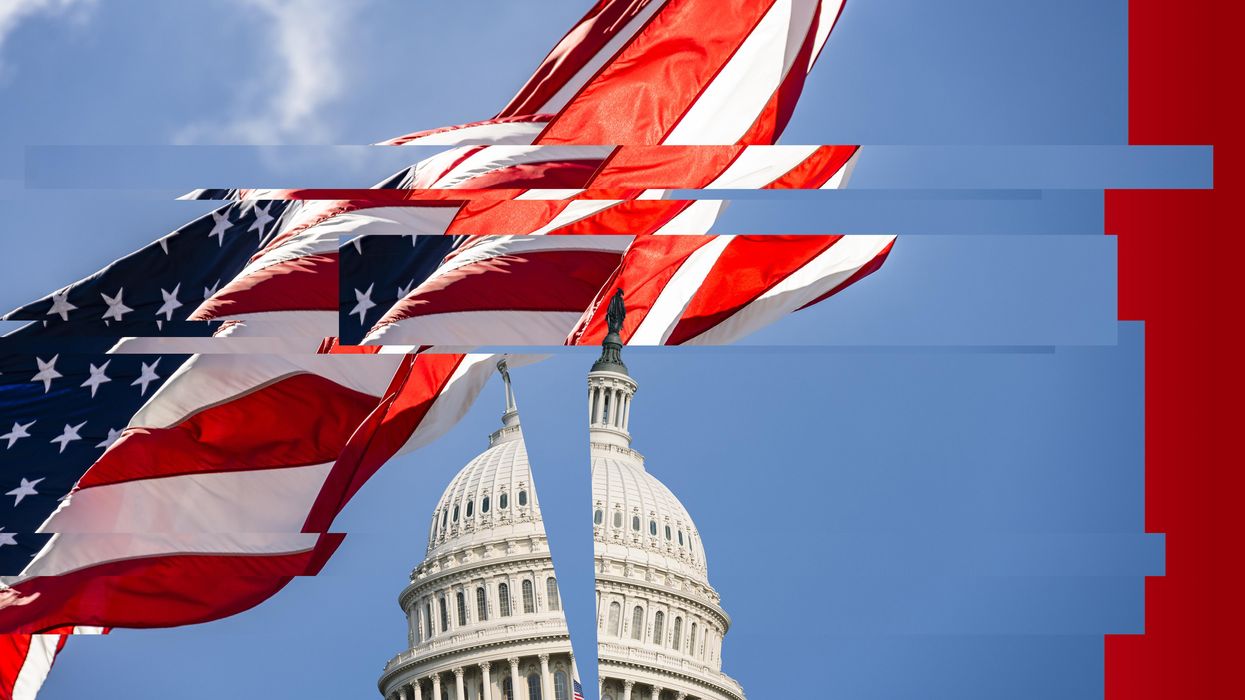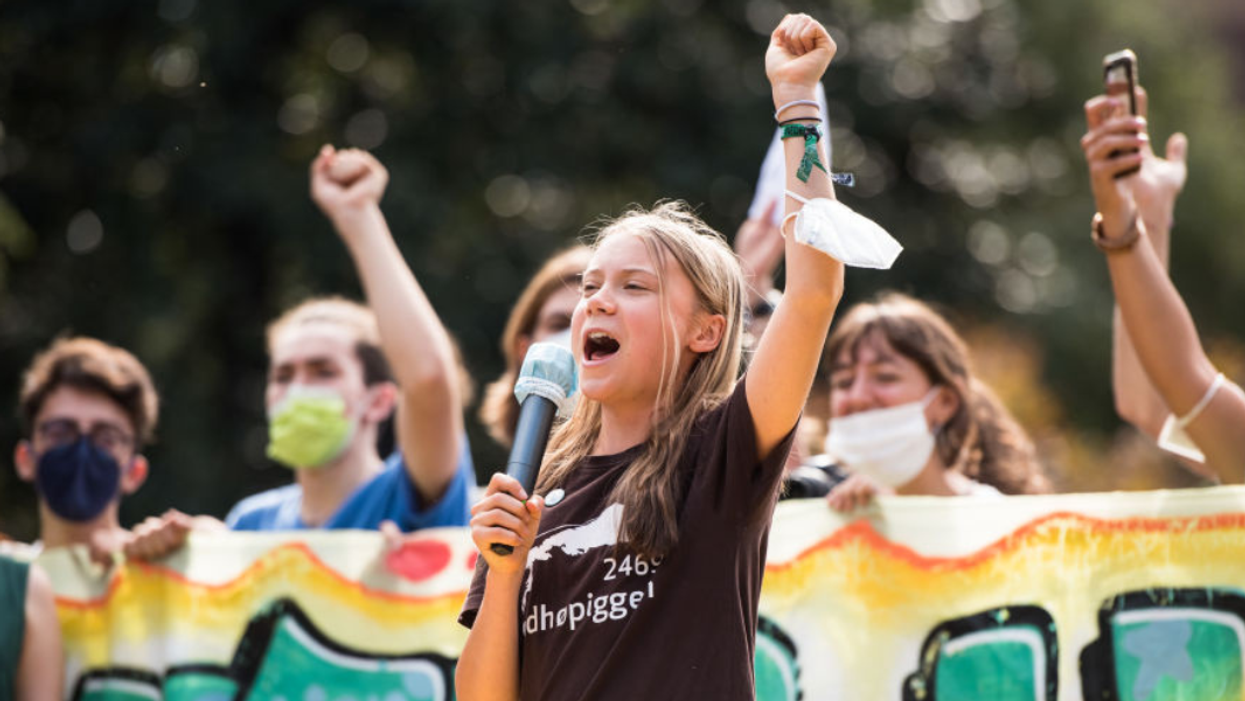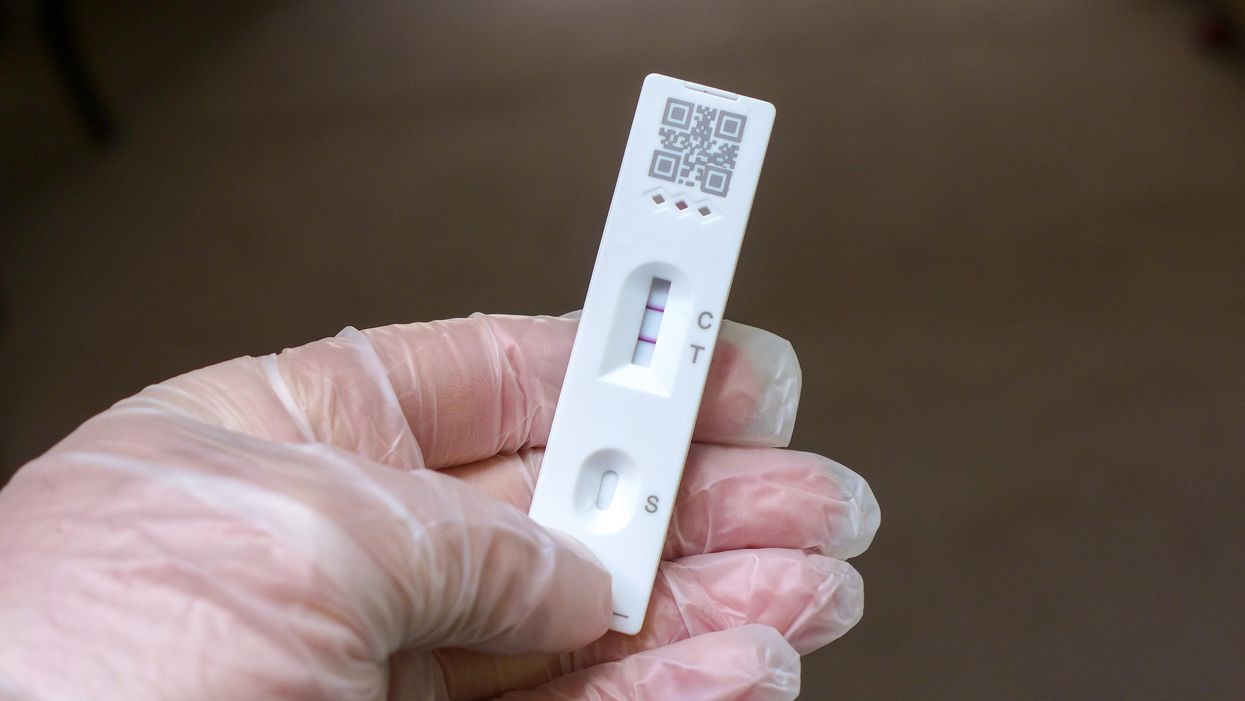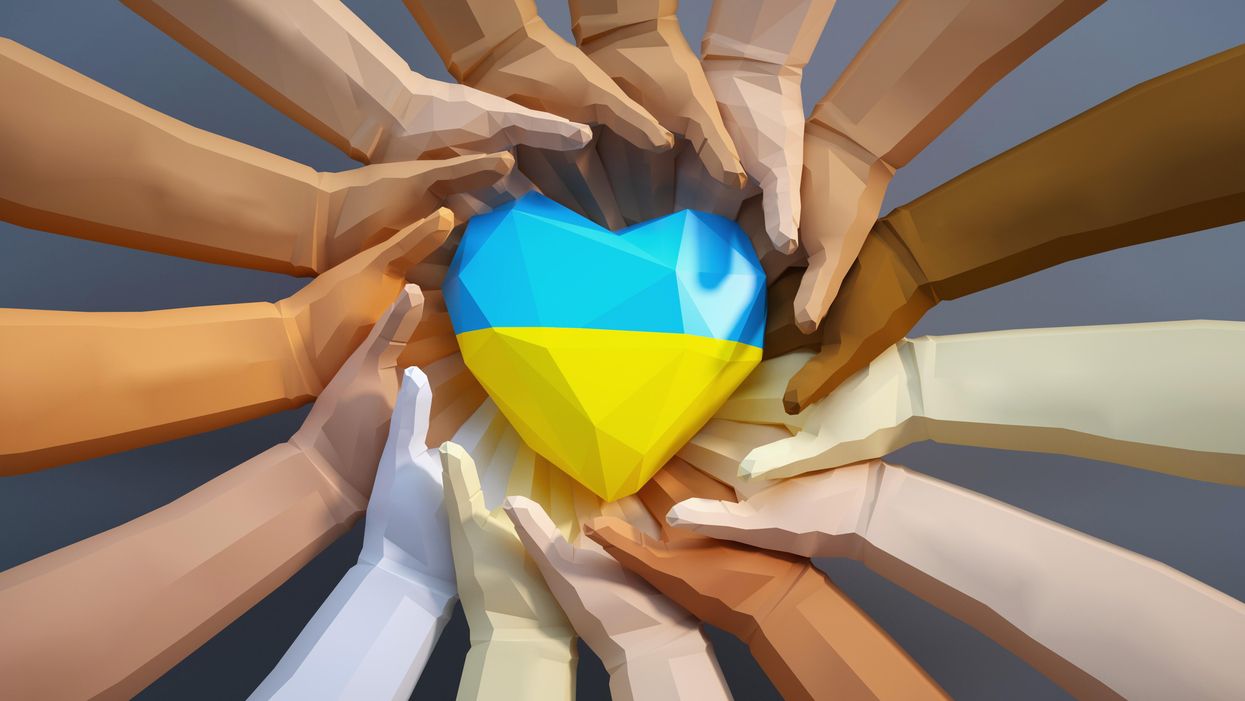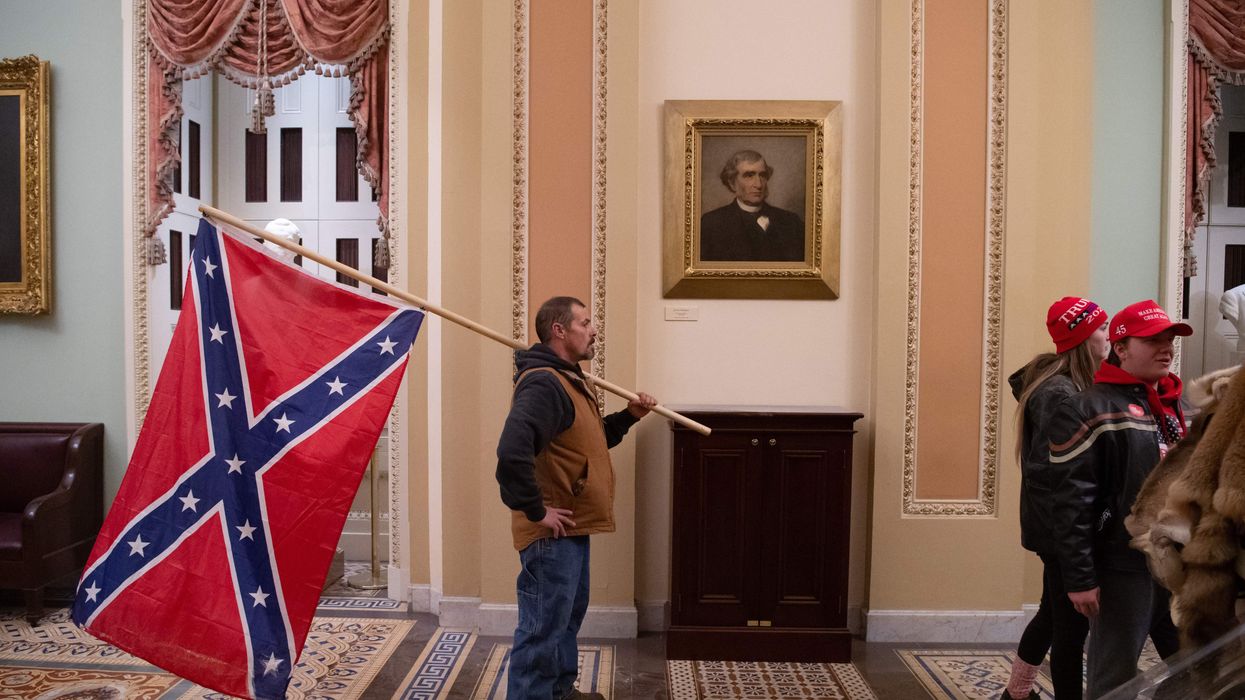Willis is the founder and director of Oregon's Kitchen Table at Portland State University and executive director of the Deliberative Democracy Consortium. She is the author of a textbook, a book of essays and two books of poems.
A couple of Sundays ago, I stayed in bed late — or at least late for me — texting everyone I know. To person after person, I sent the link to a Globe and Mail op-ed with the ominous title “ The American polity is cracked, and might collapse. Canada must prepare. ” The piece was written by Canadian political scientist Thomas Homer-Dixon and had been knocking around my Twitter feed for a few days before I finally got up the gumption to read it. Here’s the lede:
“By 2025, American democracy could collapse, causing extreme domestic political instability, including widespread civil violence. By 2030, if not sooner, the country could be governed by a right-wing dictatorship.” As if that wasn’t enough, Homer-Dixon, a scholar of violent conflict, spent the next several thousand words describing what he calls “the prospect of a fatal weakening of U.S. democracy.”
The reason I carpet bombed — to use a horrible, violent metaphor — my friends and family with a Canadian news article barely after dawn on a Sunday morning was not just that the piece was stark and terrifying but also because everything Homer-Dixon described was so recognizable and rang so true — structural and institutional injustices, persistent income inequality, emboldened white supremacy, elite selfishness, all combined with 400 million firearms. He reflected back to us what we already see and affirmed our worst fears about the potential consequences.
So I decided that terror loves company and shared it with everyone I know. In response, my brother-in-law sent me a piece by New York Times columnist David Brooks that claimed “ America is Falling Apart at the Seams.” Brooks catalogued everything from reckless driving to hate crime to a decrease in charitable giving in support of his conclusion that “[t]his is what it feels like to live in a society that is dissolving from the bottom up as much as from the top down.”
Even Maria Shriver departed from her typically dulcet tones in her newsletter. In response to Brooks’ column and the news of a friend’s murder, she went off the rails, too: “Godammit, my fellow citizens. We have got to reclaim this narrative about our country before it’s too late.” She went on to argue that America has reached proverbial rock bottom, and that now might be our one and only chance to do something about it.
And meanwhile, a large majority of Americans agree that something is very, very wrong. In a recent NBC News poll, 72 percent of Americans said the country is headed in the wrong direction; 70 percent answered “no” when asked “Can the nation come together?”; and 76 percent believed that American democracy is threatened. When asked to characterize the country, respondents used words like "downhill," "divisive," "negative," "struggling," "lost" and "bad."
All this bleak talk — without even a mention of impending global climate catastrophe. “Don’t Look Up,” anybody? — has me trembling with existential angst. Am I wasting my life? Am I fiddling while Rome burns? What should I do? Where should I look? What should I even think about?
I recognize this as a moment of discernment. A moment where our choices — even the smallest ones — matter. I’ve been here before, of course, wondering whether I am spending my days on the right things, on the things that matter, on the things that might make a difference. Other times, when I have been casting about for a sense of direction, I have found comfort and structure in those Venn diagrams that ask you to map your passion, your skills and what is needed in the world. The tiny almond where all three meet shows you where you should put your energy. It always seemed so reassuring, so scientific, so concrete.
And yet, I find myself looking elsewhere now. I find myself ruminating on the brokenness of it all. I can’t help but think about how some of those anti-democratic ingredients were baked into the country from the very beginning. Slavery was fully considered and accepted by the Constitution and its framers. And the Senate, compounded by the Electoral College, has always given disproportionate weight to the votes of some Americans at the expense of others. All of this influences who chooses Supreme Court justices, and at some point, it starts to feel like a flawed and irreversibly stacked system.
But we can’t put it all on the Founders. We haven’t done our best work either. Polarization is as bad as it has ever been. We are teetering on the precipice of irreversible and catastrophic human-caused climate change. Democratic innovation is stalled in Congress and most of the states. And, as Homer-Dixon points out, we are armed to the teeth.
The last few days, I have played Leonard Cohen’s “ Anthem ” on repeat, one of the most famous contemporary odes to brokenness.
“Ring the bells that still can ring,
Forget your perfect offering.
There is a crack, a crack in everything.
That's how the light gets in.”
And I know it’s not just the brokenness of a system that I did not design and have limited power to change that I am fixated on. I am also feeling the weight of my own brokenness. Of my own distraction and self-interest and ennui. Of my own failures to be imaginative enough or ambitious enough or loving enough. As lawyer and civil rights activist Bryan Stevens puts it in his memoir, “Just Mercy,” “[w]e are bodies of broken bones,” and,, boy am I feeling it.
As I sit in this soup of alarm and confusion and regret, there is another Venn diagram I have become interested in, that I am starting to believe might lead me somewhere else. It is the Venn diagram of brokenness that has my attention, the map of where my brokenness overlaps with the brokenness of the nation. In her book “All About Love,” bell hooks reminds us that “the place of suffering — the place where we are broken in spirit, when accepted and embraced, is also a place of peace and possibility. Our sufferings do not magically end; instead we are able to wisely alchemically recycle them. They become the abundant waste that we use to make new growth possible.” And perhaps that place of suffering is not only where our personal growth begins, but also where the alchemical compost of our collective growth might lie.
This Venn diagram of brokenness — where my hurt and hurtfulness overlaps with the hurt and hurtfulness of the nation — is one that requires some specificity. It requires me — and all of us, really — to declare ourselves. Even when we don’t want to.
Okay, I’ll start.
Belonging. That’s it. When I close my eyes and ask myself where my brokenness and the brokenness of the nation overlaps, belonging is the word that rises over and over again. When I consider when I am most graspy, when I am most likely to engage in casual cruelty, it is when I fear that I don’t belong. It is when I feel like I am on the outside of some warm circle that I can see but cannot quite penetrate. At times, I have felt that I don’t belong in my family. I have felt that I don’t belong in my school. And I have felt that I don’t belong in my workplace. Of course, all of that is arguable. But it doesn’t even matter whether it is true that I don’t belong, the fact is that I will do almost anything to avoid feeling that I don’t belong. Most often that includes trading on information or gossip in order to feel like I am on the inside. It includes saying unnecessarily cruel things to get a laugh or connect with others in our superiority. That’s what brokenness looks like. At least, that’s what my brokenness looks like, and as Bryan Stevenson says, we are both hurt and hurtful in that brokenness.
And that is where my brokenness overlaps with the brokenness of the nation. A few years ago, I posted on my Facebook page: “Who wants to talk with me about belonging?” Dozens of people responded to me, both publicly and privately, wanting to explore their sense of belonging, or more accurately their sense of not belonging.
Our nation was founded by withholding belonging, ensconcing some people — white people, male people, rich people — at the center and pushing others to the outer rings. And because it is in our national DNA, we repeat that denial of belonging over and over again. We have become experts at the practice of exile. We lead the world in incarceration. We expel children from school. We proclaim who is a “real American” and who is not. We shout “Go back to where you came from” out the windows of our cars. And we banish those whose opinions we would rather not be confronted with. We have weaponized exile and relish the power of denying belonging to those we don’t like.
So for me, I guess that’s it. That’s the tender spot where my own broken spirit and the brokenness of the country meet. And when I dig down deep enough, that tender spot holds the answer to the question “What should I do?” and all the attendant questions that come with it. That’s the place where I must focus my work — the work of cultivating a sense of deep and sustaining belonging, a sense of radical belonging for all of us who find ourselves here together. It is also the work of refusing the lure of exile to make myself feel better. It is showing up again and again in a spirit of hospitality and open-heartedness, even if I know I am sure to feel rejected and banished some of the time. There will be twists and turns and surprises along the way. And Lord knows, I am broken and bruised in other places too, so the answer to the question “What should I do?” will undoubtedly shift over time. But this is my work for today.
Everyone’s Venn diagram will be a little different, of course, because each of us is broken in our own special way. Each of us has our own hurts and our own hurtfulness. Each of us meets the whole at a different tender spot. And as the wisdom teachers bell hooks and Leonard Cohen tell us, that’s where the alchemy is possible, that is how the light gets in.





